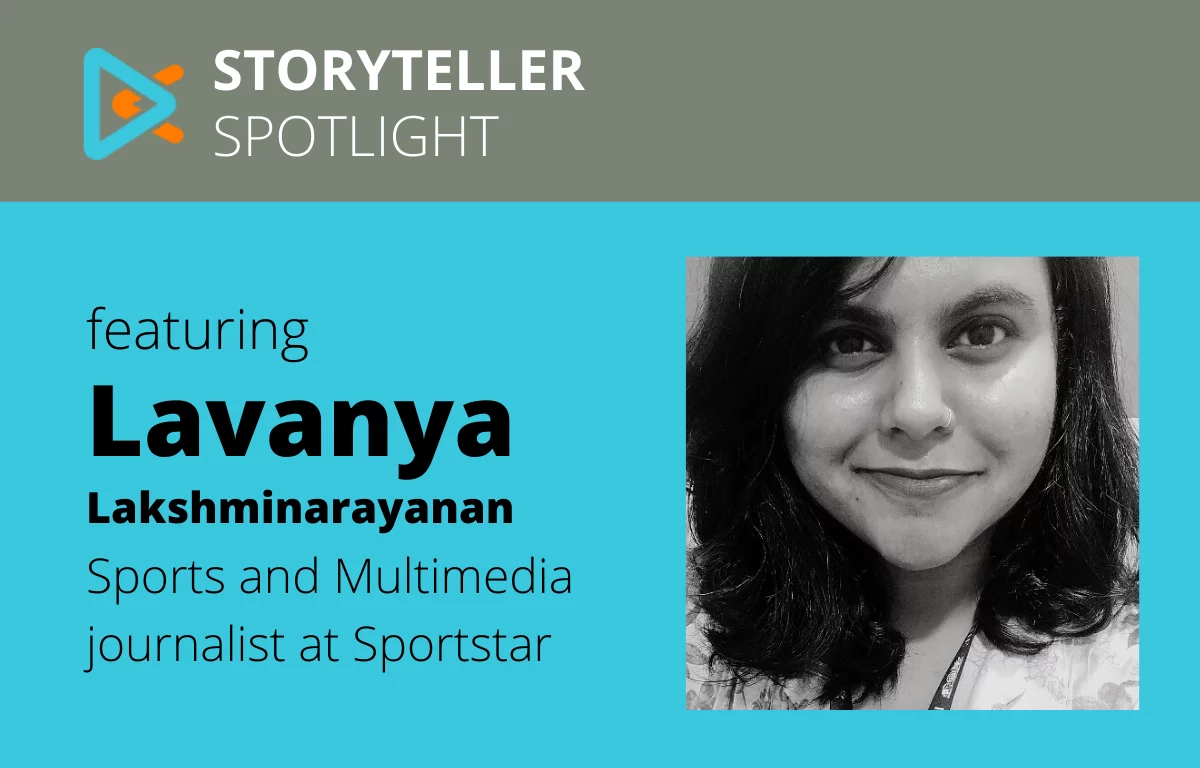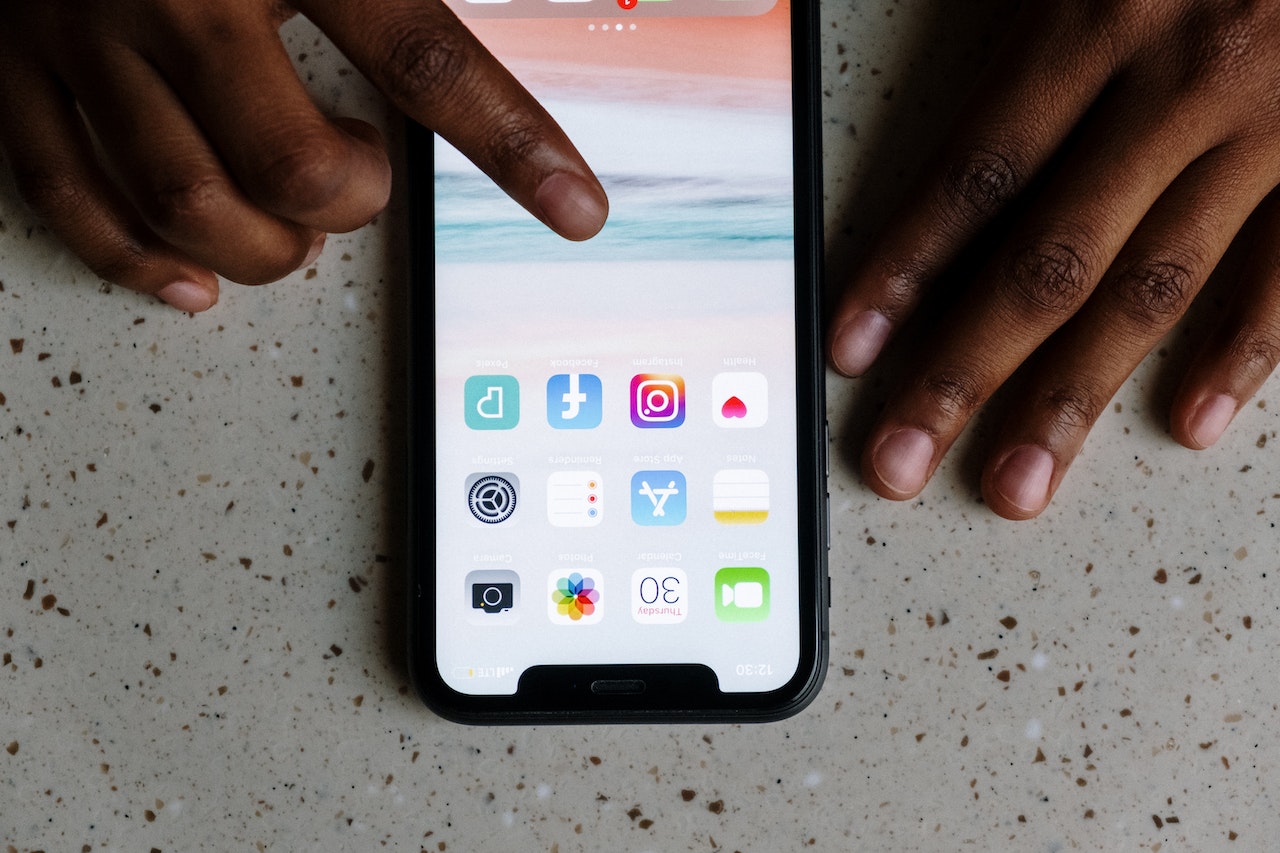For this week’s #StorytellerSpotlight, we reached out to Lavanya Lakshminarayanan, a multimedia journalist with Sportstar.
Lavanya works on videos and podcast production, and among other things, gives some great insights on cutting through the clutter at a time when consumers are bombarded with content from all angles. Check it out!
What are the three main ingredients for a great story?
Personalities, conflict/ struggle, relationships – these are very important ingredients for a story. As exploitative as it sounds, struggle or hardship makes for interesting storytelling and you need strong personalities to carry the burden of making this a story worth investing time on.
When dealing with more than one person in a story, the equation they share often takes centre-stage. Unless we get people to identify with these relationships or efforts, it’s hard to sell the story to your viewer, especially so in videos.
What’s an advertisement that has really stayed with you? Could you try and break down why it struck a chord?
The Nike Ad ft Colin Kaepernick somehow is one that has always stayed with me. There is a fair bit of tokenism that comes with inspirational sports ads and this one was no different but in seeming to side with Kaepernick and what he was shunned for, Nike stood out.
One classic - book or movie - that you wish you had written...
Industrial English or holocaust era literature. The characters, the politics, just how important developments were for feminism and human rights – is very inspiring (as horrifying as these times were). I wish I could write the Harry Potter series, especially the parts that nod to the actual World War and other concepts. It would be interesting to consider that book from a culturally diverse perspective and not just with tokenistic racial additions.
One story from the recently concluded Olympics that really made an impression.
I hope the Paralympics count here. I can’t get over the developments wrt the Afghanistan contingent. The developments in the nation are nothing short of horrifying and how some kind countries are coming forward to give the female athletes a chance is the stuff sports journalists hope for. It is a conversation that is demanding sports journalists to dip into politics (as they anyway should as the realms cannot exist independently). That the two athletes participating – Zakia Khudadadi and Hossain Rasouli -have been airlifted and aided to participate warms my heart. Hope their families are safe too and they have a safer future.
One movie/ TV show you recommend to anyone who asks - and why you loved it.

This keeps changing all the time for me but one I would recommend now is The Good Doctor – for the questions about perceptions about learning disability it poses and its handling of racial identity, mental health and imposter syndrome and many other (I hate this word) woke ideals of today. Worth a watch. Although, they fell prey to yellow-scaling the ‘lesser developed’ Guatemala too, so I guess no one is perfect sadly enough.
Audiences have a lot of choice today, and one common challenge as a storyteller is breaking through the clutter. Have you faced this? If yes, how have you adapted?
One way to engage in commonplace content is to get to it early. If you’re trying to give someone all the information about an event, you need to beat the crowd to it. If that window has passed, finding a storyline – a perspective that others might have missed – or even a telling the story through a different set of eyes help. The ultimate goal is to help the viewer/reader empathise or at the least understand what the development is. As easy/relatable as that is, the better. The other thing is to identify aspects of a story that have longevity – future turns the story may take, pre-empting future developments and making that the peg of the story as opposed to going over what is already out there is another way of going around the clutter.
What do you do when you have a deadline and your brain stops working? Any go-to hacks to get past the block?
I find methodical or mundane things are a great way to get your mind off something. For me, cooking is the easiest way out. There is a recipe – a set number and order of steps and a set way (how much ever you experiment) of doing something. You need to do it patiently to get the perfect meal and it somehow helps me de-stress so well. A good end product also pumps me up to do the next thing – whether it is work or even head for a nap – really well. Naps are great too, to clear your head (provided they come with alarms or people you’ve got on standby to wake you up on time). While writing, if I lose sight of structure, I often listen to the quotes I have before me or read the responses and try and recreate the interaction in my head. A way to help yourself ahead of time for a block like this is to maintain a notebook where you quickly pen down ideas/angles/plots as interactions or story research happens. They are true life savers.







